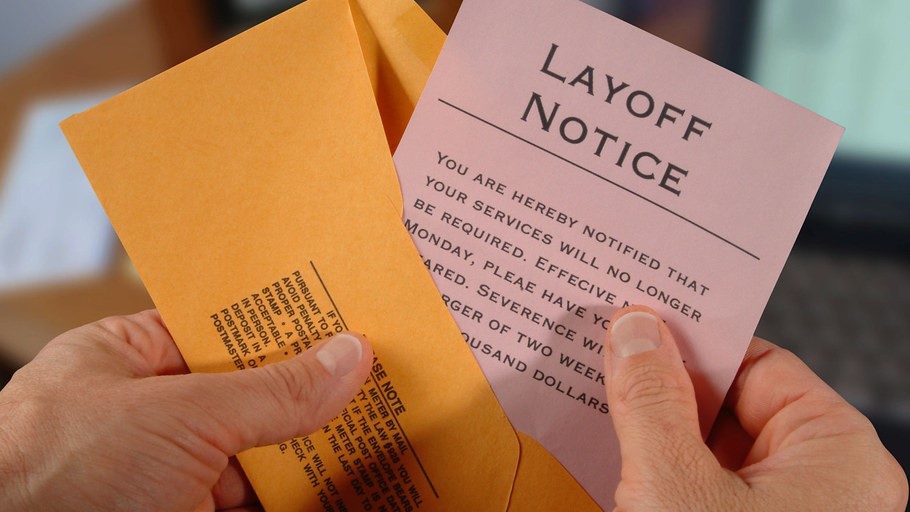
April 01, 2020
Written by: Shraddha Gotad, Workforce Development Coordinator, DUKE Heights BIA
The global outbreak of Coronavirus (COVID-19) is creating significant challenges for employers at all levels and organizations of all sizes. When faced with a crisis, most employers may be forced to think and behave in ways that feel unfamiliar. Whether it’s a technological, financial, natural, or health crisis at work or in the community, crises demand that leaders take an emergency response plan and adapt it as new evidence and factors present themselves.
Many employers are reluctant to let staff go because it is difficult to find the right talent in the tough labour market. Many employers have already halted their recruitment efforts and are taking a “wait and see” approach before making any decisions at all about downsizing.
Given the current economic challenges that continue to grow, many employers are also considering the unfortunate prospect of temporarily laying off staff, reducing business hours, services or even closing their doors completely.
Can an employer temporarily lay off employees until business improves?
This is difficult for many employers because they find themselves in an unprecedented situation. But although some laws have been amended, the fundamental law hasn't changed. There's always an assumption that if things slow down, if you don't have much work, you can just send people home for a little while. However, unless there's either an explicit agreement in the contract or it's implied by the nature of the workplace or industry, then you may not have that right. A temporary layoff without the express or implied consent of the employee is constructive dismissal.
The government has announced aid and support that can assist businesses to avoid layoffs, and help sustain themselves through the COVID-19 crisis. The aid is expected to be delivered through the following programs.
- Extended work-sharing programs from 36 weeks to 76 weeks
- Up to 75 percent wage subsidy for qualifying businesses for up to 3 months retroactive to March 15, 2020.
- Business Credit Availability Program (BCAP) to provide $65 billion of additional support through the Business Development Bank of Canada (BDC) and Export Development Canada (EDC).
- The EDC will provide a guarantee (a form of a backstop) for your loan with your financial institution, giving your financial institution the assurance to give you access to credit.
- BDC will provide working capital loans of up to $2 million with flexible terms and payment postponements for up to six months for qualifying businesses.
- The new Canada Emergency Business Account will provide interest-free loans of up to $40,000 to small businesses and not-for-profits, to help cover their operating costs
- Under the Temporary Employer Health Tax(EHT) exemption, the province will be cutting taxes by $355 million for about 57,000 employers through a proposed temporary increase to the Employer Health Tax (EHT) exemption.
- The Workplace Safety and Insurance Board (WSIB) is allowing employers to defer payments until August 31, 2020
- Grace period for property taxes and utility bills, the city will be suspending automated withdrawals and provide a 60 day grace period for property taxes and utility bills
However, assuming that as an employer you do have the right or that the employee agrees to a temporary layoff, then employment standards legislation sets out some guidelines,. Generally, a temporary layoff is considered to be a temporary period in which the employer ceases to provide work (and usually pay) to employees. So, for example, in Ontario, you can temporarily lay someone off for up to 13 weeks in any consecutive 20-week period. This can be extended up to 35 weeks in some circumstances within any consecutive 52-week period. Where the layoff extends beyond the prescribed temporary period of time described by the legislation, termination obligations will apply.
Employees on layoff may be entitled to federal employment insurance benefits in Canada.
If the temporary layoff is not an option for the employers they can also consider the below options
- Offering unpaid leaves of absence
- Asking for voluntary layoffs
- Asking for a voluntary reduction in wages or hours of work
Many of these need careful implementation (and the assistance of legal counsel) and/or may not be possible in workplaces with a collective agreement.
As an employer it is very important not to make assumptions about how the law works, as any wrong decision, can result in high chances of inadvertently exposing yourself to a wrongful dismissal claim. However, if as an employer you are still considering the possibility of temporarily laying off your employees due to the significant slowdown in business as a consequence of the COVID-19 crisis, then you should ensure that you do so in accordance with the laws of the jurisdiction(s) in which your business operates. To ensure this, it would be wise to seek the support of legal counsel.
For more information refer to the Ontario Employment Standards Act, 2000 (ESA), Canada’s COVID-19 Economic Response Plan.







